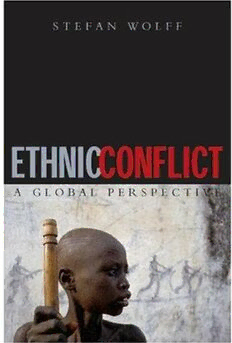
Ethnic Conflict: A Global Perspective PDF
247 Pages·2007·1.891 MB·English
Most books are stored in the elastic cloud where traffic is expensive. For this reason, we have a limit on daily download.
Preview Ethnic Conflict: A Global Perspective
Description:
Why is it that Catholics and Protestants in Northern Ireland have been in perpetual conflict for thirty years when they can live and prosper together elsewhere? Why was there a bloody civil war in Bosnia and Herzegovina when Croats, Serbs, and Muslims had lived peacefully side-by-side for decades? Why did nobody see and act upon the early warning signs of genocide in Rwanda that eventually killed close to a million people in a matter of weeks? What is it that makes Kashmir potentially worth a nuclear war between India and Pakistan? In Ethnic Conflict, Stefan Wolff draws upon eye witness testimonies, reports by Human Rights organizations, theories of conflict and conflict management, and his own long experience in working to resolve ethnic conflict to offer compelling answers to these questions. In recent years hardly a day has gone by when ethnic conflict in some part of the world has not made headline news. The violence involved in these conflicts continues to destabilize entire regions, hamper social and economic development, and cause unimaginable human suffering. Wolff goes beyond superficial media coverage of these crises to illuminate the broad similarities between ethnic conflicts around the world and to engage the fundamental question underlying them all: why do nationalism and ethnicity still have such terrible power to turn neighbor against neighbor? Wolff also explores the crucial-and growing-links between ethnic conflict and other security challenges, such as terrorism and organized crime. No issue is more pressing in the world today than the ongoing and seemingly intractable tragedy of ethnic conflict. Stefan Wolff's new book sheds vitally important new light on both the causes and the potential solutions to one of humanity's darkest behaviors.
See more
The list of books you might like
Most books are stored in the elastic cloud where traffic is expensive. For this reason, we have a limit on daily download.
